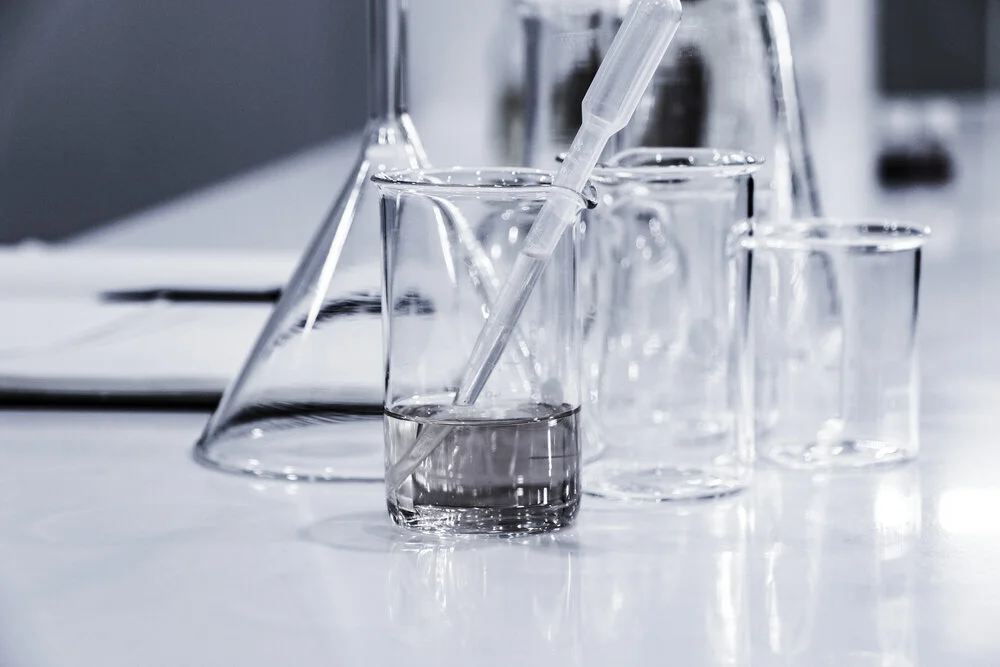
Subject Advice Guide
Chemistry
Overview
Chemistry is a wide-ranging science concerned with matter at the atomic and molecular scale. Important aspects are synthesis, structure, reaction mechanisms, properties, analysis and transformations of all types of materials. Aspects of maths, physics and biology are all covered from a chemical perspective as well as the fundamentals of chemistry itself.
Chemists are a constant source of innovation: it is hard to imagine any product introduced in recent times that did not require the creative efforts of a chemist. Chemistry underpins the conceptual framework and methodology of biochemistry and molecular medicine and is at the heart of many major industries.
Labs are also a requirement of the course which allows you to carry out cool experiments and apply concepts learnt in lectures and tutorials.
Choosing Your Course
Chemistry and maths are an essential requirement for this course. Further Maths and physics are recommended but not required so if your school doesn’t offer either it’s not too much of a problem. The essential further maths and physics concepts for the course are covered in lectures and classes but they are done so at a quicker pace than what you’d expect at A level. If biology is available to you that is also quite favourable as there is typically one biological chemistry module per year and there is a related supplementary course too.
I chose chemistry because I enjoyed it a lot at A level and was interested in the content mentioned in the syllabus in the Oxford prospectus. I had the chance to go to a few biochem and chemistry taster days at other universities which helped me to rule out biochemistry and confirm my interest in chemistry. Also, chemistry is a well-respected degree which can open many doors after graduation.
One of the great things about the Oxford Chemistry course is that the first three years are like a cohesive unit. So, by the time we enter our third year, we’re quite well-versed with the structure of the course, lectures, labs, etc.
Career Prospects
A large majority of people tend to go onto complete doctorates and then pursue a career in research. Others tend to go work in labs in either the energy, clinical or pharmaceutical industry. Some decide not to pursue chemistry afterwards and go on to work in banking or consultancy and management as a chemistry degree provides you with transferable numerical and analytical skills as well as chemical knowledge.
What to Expect
Year 1: Typically, there are around ten lectures a week: lectures last about fifty minutes and are usually timetabled for the morning. You will generally have two lab days a week and you will have one or two tutorials (which usually last around two hours) a week with your college tutors. Here you go through work set by them prior to the tutorial. You will also usually have one maths class per week with your maths tutor where you’d go through problem sheets set during lectures.
Year 2/3: Second year is Identical to first year except now the opportunity to complete optional supplementary courses is available. These courses mean you’ll usually have one or two extra lectures a week in your first two terms of 2nd year and tutorials and/or classes based on these are also taken. In third year, you get to choose the experiments you’d like to do and also when you’d like to do them (as long as you complete the required lab hours by the end of the year.) In Hilary of third year, you typically only have to attend 3-4 lectures a week so contact hours are massively reduced, leaving plenty of time for independent revision! Come Trinity, all that remains are a few revision lectures and some more revision classes. All contact hours are usually wrapped up by 4th week of this term, leaving us with around two solid weeks of revision before finals which are usually in 6th week. And just like that, third year of Chemistry at Oxford comes to an end!
Final year: This year is entirely different and consists of you working on your own schedule in order to get your research project completed. A lot of time will be spent in the practical labs or within the computational chemistry labs depending on your project. There will also be meetings with supervisors as well as working on your thesis. This year is much more flexible in comparison to the other three.
Course Structure
Year 1: There are two modules per branch of chemistry and one module of maths per term. The year ends off with prelim exams (which do not count towards your final grade). Labs are compulsory but the marks don’t count towards your final grade.
Years 2/3: In second and third year, labs begin to count towards your final degree – they are worth a total of 10%. There is less focus on maths, but many of the topics build on first year content. Second year exams are worth 15% of the degree, and third year exams (finals) are synoptic and are worth 50%. Supplementary subject exams are often taken in second year – passing one reduces the lab requirement in third year.
Final year: The fourth year (Part II) is devoted exclusively to research and involves full-time work within an established research group, which offers the possibility for you to spend time at laboratories in industry or at universities abroad. Many students find work placements during vacations through the Careers Service or within the department.
Recommended Reading
Book/podcast recommendations:
“New Scientist” (Magazine) - An excellent resource of engaging scientific content which also features an explanation to most of the concepts that are discussed or even discovered. It is an excellent way to increase your chemical knowledge but also allows you to develop knowledge of the other sciences which in turn will help you to understand chemistry even better. It is usually up to date with all of the new science that emerges, staying on top of this reflects your interest in science well. Reading science articles, especially those that contain information outside the scope of A Level or IB content is really useful to mention in your application as the fact that you read about chemistry in your own time demonstrates that you have a genuine interest for Chemistry, which is exactly what Oxford tutors are looking for.
“50 Chemistry Ideas you Really Need to Know” (Book) – the title of the book says it all and it’s a really fun read!
“Why Chemical Reactions Happen” (Book) - This is a very popular book as it is on the recommended reading list. The book covers ideas from entropy to atomic and molecular orbitals to kinetics and energetics. The diagrams and tables in the book are well annotated and easy to understand. The book tries to avoid too much mathematics and admits to not explaining how some theories/mathematical functions were derived, as they are not relevant to the reader’s understanding of the concepts being explained. Also, each chapter builds on the previous, helping to consolidate knowledge. All in all, an excellent read for helping you to begin to understand more complex chemical concepts.
“NileRed”, “NileBlue”, “Periodic Videos” (YouTube channels) - These channels have really cool and sometimes whacky 10-15-minute videos in which fascinating chemical experiments are carried out. The host explains the concepts behind the chemistry in a really interesting and digestible way. They showcase the main reason why chemistry is so cool with explosions and all sorts of different coloured gasses and liquids. They also feature experiments which answer seemingly basic questions that you may have not thought about before such as “How does water put out a fire?”. The videos also showcase phenomenon that you will come across but may have not been able to carry out in school labs such as going beyond the scope of normal conditions to create supercritical fluids.
“Organic Chemistry: A Very Short Introduction”- Graham Patrick (Book) – A brilliant little book for the interested and curious. The book describes fundamentals extremely well as important beginner questions are answered thoroughly from the start: why don’t people bother drawing carbon-hydrogen bonds? What is a bond anyway? How does a chemist know what they’ve made? The book covers a broad scope of organic chemistry and is full of familiar topics, such as drug discovery and pesticides which are explained extremely well. The book also covers the perhaps more unfamiliar role of organic chemistry – rather than biology – in the processes of life, and in how people see, taste and smell, this makes the book enjoyable as it is instantly relatable to everyday life. Overall, this book offers a wonderful insight into the real-world uses and future potential of organic chemistry.
“The Secret Life of the Periodic Table” - by Dr Ben Still (Book) - A fun read, with loads of astonishing fun facts about all the elements and a simple overview of quantum mechanics.
Future Learn (Website) - This is an amazing website with plenty of free courses on topics like atmospheric chemistry, medicinal chemistry, etc. The courses are great to complete to mention in personal statements as well as general expansion of knowledge in terms of the applications of chemistry. There is an excellent course on the principles of thermodynamics which gives a good introduction to the first-year thermodynamics course at Oxford by providing a good foundation of key principles.
